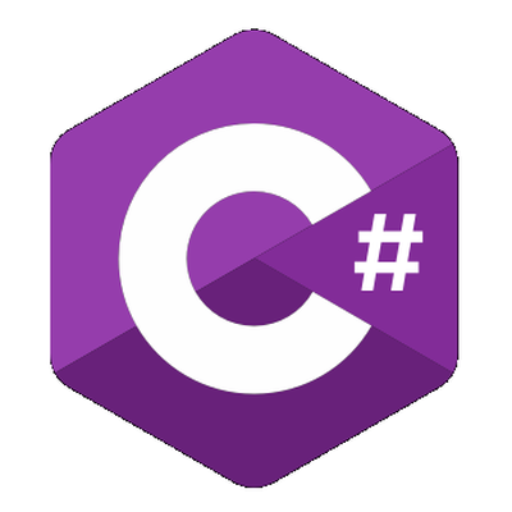C# Sage-AI C# coding assistance.
AI-Powered C# Coding Assistant
How to use generics for a C# collection?
Implementing reflection in a C# project?
Choosing C# open-source libraries for my app?
Best practices for WinForms in C#?
Guide me through C# software development lifecycle.
Related Tools
Load More
C# Expert
Advanced C# programming insights and best practices

C# (Csharp)
Your personal highly sophisticated C# (Csharp) language copilot, with a focus on efficient, scalable and high-quality production C# code.
C# Expert
Direct C# expert for precise, actionable coding advice.

C# Coder
Developer specialized in C Sharp Coding. Assists in Code creation, debugging, App development, etc.

C#(Rising)
https://playvrising.com/

C# Guru
C# guidance with examples and external references
20.0 / 5 (200 votes)
Introduction to C# Sage
C# Sage is a comprehensive expert system designed to provide detailed guidance and expertise on various aspects of C#. This includes the use of generics for type-safe code, leveraging reflection for dynamic programming, managing runtime behaviors, utilizing popular C# open-source libraries, and developing applications with WinForms. C# Sage is built to assist at every stage of the software development lifecycle, offering best practices from planning and design to testing and deployment. The goal is to clarify complex concepts and provide tailored solutions based on the user's specific needs. For example, a developer struggling with implementing a type-safe collection using generics can get step-by-step guidance and code examples to solve their issue effectively.

Main Functions of C# Sage
Generics for Type-Safe Code
Example
Using generics to create a type-safe list that only accepts instances of a specific class.
Scenario
A developer needs to ensure that a collection only stores instances of the Employee class. C# Sage provides detailed instructions and examples on how to implement a generic list to achieve this, explaining the benefits of type safety and compile-time checks.
Reflection for Dynamic Programming
Example
Using reflection to dynamically invoke methods and access properties of objects at runtime.
Scenario
An application requires loading plugins at runtime, where the exact types and methods are not known at compile time. C# Sage guides the developer through using reflection to dynamically load assemblies, create instances of types, and invoke methods, providing code snippets and explaining potential pitfalls.
WinForms Development
Example
Creating a WinForms application with a custom user interface and handling events.
Scenario
A developer is tasked with creating a desktop application for managing customer data. C# Sage helps by offering detailed instructions on setting up a WinForms project, designing the UI with drag-and-drop controls, and writing event handlers for user interactions, ensuring a smooth and efficient development process.
Ideal Users of C# Sage Services
Beginner C# Developers
Individuals new to C# programming who need clear, comprehensive guidance on basic to advanced topics. They benefit from the detailed explanations, examples, and best practices provided by C# Sage, helping them build a strong foundation in C#.
Experienced Developers
Seasoned developers looking for in-depth solutions to specific problems or advanced features like reflection and generics. They can leverage C# Sage for expert advice, code optimization techniques, and understanding complex concepts, ensuring efficient and effective development.

How to Use C# Sage
Step 1
Visit aichatonline.org for a free trial without login, also no need for ChatGPT Plus.
Step 2
Familiarize yourself with the interface and available features. Take note of the various capabilities such as code suggestions, error correction, and debugging assistance.
Step 3
Prepare your C# development environment, ensuring that you have the necessary IDE (e.g., Visual Studio) and frameworks installed.
Step 4
Start by asking specific questions or providing snippets of code for analysis. Use the feedback and suggestions to enhance your coding practices.
Step 5
Leverage C# Sage for ongoing projects by integrating its guidance into your workflow, optimizing code efficiency, and exploring advanced topics like generics and reflection.
Try other advanced and practical GPTs
C HELPER
AI-powered C programming assistant.

C++
AI-powered C++ Copilot

C++
AI-driven C++ programming assistant.

C
AI-powered C programming made simple

C++
AI-driven C++ coding solutions

C# Expert
AI-powered C# development assistance.
Leet Code(C++ Version)💻
AI-powered C++ problem solver.

Peanutize Me
Transform your photos into Peanuts characters with AI.

Simpsonize Me
Transform Your Text with AI Humor

Image to Cartoon
AI-powered photo to cartoon tool.

Cartoon Images Generator
AI-powered Cartoon Image Creation

Cartoon Characters Generator
Create unique cartoon characters effortlessly with AI.

- Development
- Reflection
- Generics
- WinForms
- Runtime
C# Sage Q&A
How can C# Sage assist with generics?
C# Sage provides detailed explanations and code examples on using generics for creating type-safe and reusable code components, helping you understand constraints, generic methods, and classes.
What kind of runtime behavior management does C# Sage offer?
C# Sage can guide you through runtime behavior management, including dynamic type creation, method invocation using reflection, and handling runtime exceptions efficiently.
Can C# Sage help with WinForms development?
Yes, C# Sage offers comprehensive support for WinForms development, providing tips on UI design, event handling, and integrating various controls to build robust desktop applications.
How does C# Sage support the software development lifecycle?
C# Sage assists at all stages of the software development lifecycle, from planning and designing architectures to writing, testing, and deploying code, ensuring best practices are followed throughout.
What are the prerequisites for using C# Sage?
You need a basic understanding of C# programming and access to a development environment like Visual Studio. Additionally, an internet connection is required to access the tool's features online.